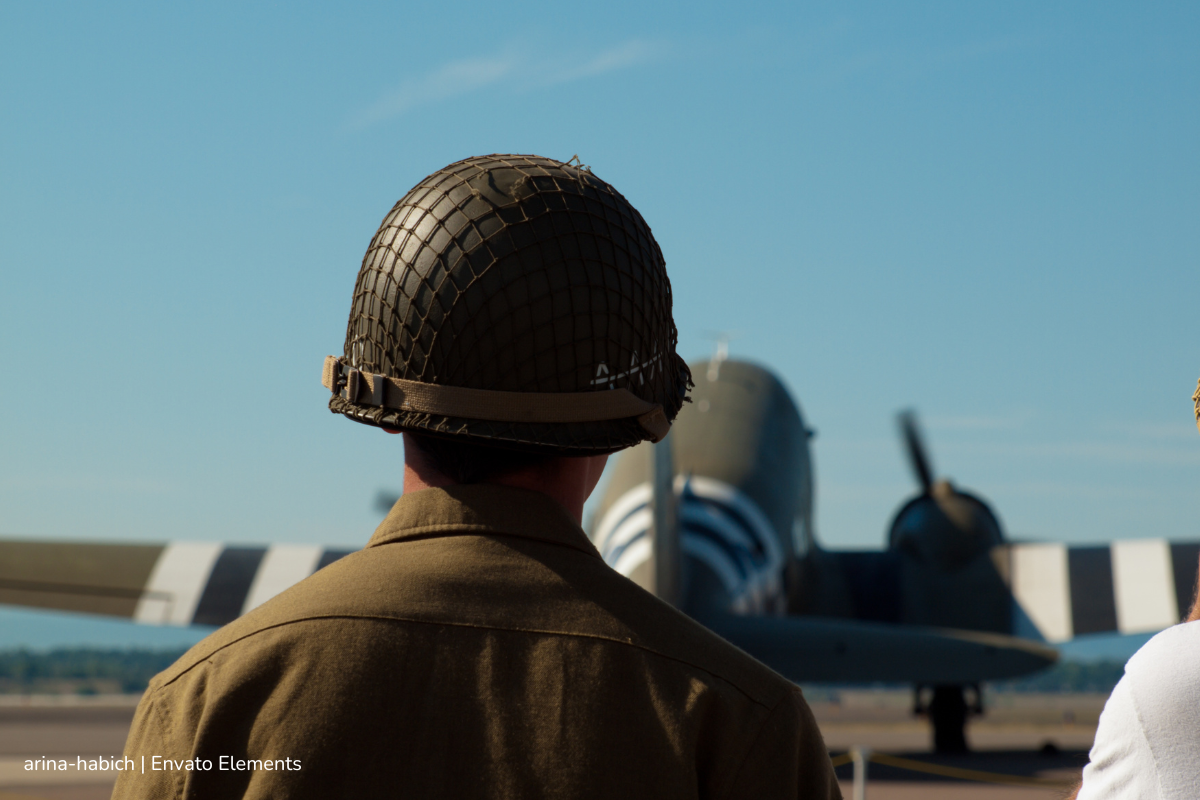Divided memories: anniversary of the end of World War II reflects today’s global fracture

May 9 was celebrated in Russia as Victory Day in World War II, which has traditionally been described by the Russian government as the triumph of the Great Patriotic War.
In the West, celebrations were held on May 8 with different events in the main European capitals. In the United States Trump pointed out that the triumph in the war was “thanks to us whether we like it or not”.
The distinction in the date of commemoration of the end of the war in Europe (May 8 in the West and May 9 in Russia) is a significant departure. While May 8 marks Germany’s unconditional surrender to the Western Allied forces, the time difference meant that the signing ceremony in Berlin occurred when it was already May 9 in Moscow.
You may read: FED maintains U.S. interest rate and complicates BanRep’s room for maneuver in Colombia
The facts of World War II, the greatest war in history
The war ended with a victory of the Allies, the Soviet Union, Great Britain, France, the United States and China, against the so-called Axis made up of Germany, Japan and Italy.
The Soviet Union had losses of between 24 and 27 million people, China between 15 and 20 million, Germany between 6 and 8 million, the United States 418 thousand and Great Britain 450 thousand. In total, between 60 and 70 million people died, or 2 percent of the world’s population, including 15 million military personnel.
The cruelty of the Axis was visible in the millions of dead in China and the atrocious Holocaust. Battles like Stalingrad or Kursk were the biggest and bloodiest in history.

The war lasted six years and after Germany’s capitulation in May 1945, Japan capitulated in September of the same year.
The Soviet Union bore the main burden of the war in Europe, since most of the German forces had been located in Eastern Europe, to the extent that it was the first to reach Berlin, but the Allies, with the Normandy landings, the war in North Africa and Italy and finally the opening of a second front, played an important role.
The United States emerged as an unparalleled economic and military power, relatively unscathed in its territory and with an intact and strengthened industrial capacity, and took the lead in the creation of international institutions such as the United Nations and implemented the Marshall Plan, for the economic reconstruction of Western Europe and the containment of Soviet expansion that had ensured its primacy in all of Eastern Europe.
The Soviet Union had suffered enormous human and material losses, but demonstrated enormous military and technological capability and concentrated on consolidating its new influence and rebuilding its economy.
The division of Germany into occupation zones that would eventually become two separate states (the Western-aligned Federal Republic of Germany and the Soviet-influenced German Democratic Republic) symbolized the growing fracturing of the European continent and the beginning of the Cold War.

You may also read: Sustained growth: exports of non-mining goods increase by 9.6%
The different interpretations of the results of World War II
While the West focuses on the “liberation of Western Europe,” Russia focuses on the epic sacrifice of the Soviet people and the decisive role of the Red Army in the defeat of Nazi Germany on the Eastern Front.
The current political context, especially the war in Ukraine, has exacerbated these differences. The instrumentalization of the memory of World War II for political purposes is a reality. While Russia’s approach to the war in Ukraine emphasizes “denazification”, the West’s emphasis on D-Day, the Normandy landings and the restoration of democracy is used to isolate and ignore Russia’s role.

There is a tendency in the Western narrative to downplay or not emphasize with equal intensity the Soviet role. This is attributed to factors such as the focus on the Western Front, Cold War tensions, and differing priorities in national historical memory. The disparity in emphasis and prominence in the popular Western narrative has generated the perception of a concealment of the Soviet role in World War II.
The commemoration in Moscow was attended by a score of heads of state and a display of military might was widely publicized and evidenced Russia’s alliances, especially with China.
Western events were held in each capital, with less military deployment, no Russian presence and support for the Ukrainian government, which among its ideological foundations is to make itself heir to its ancestors who collaborated with the Nazis.
The disparity of narratives about the results of the Second War shows a deeply divided world.
https://mascolombia.com/en/new-requirement-for-travel-to-the-united-states-in-2025-mandatory-use-of-real-id-goes-into-effect/




